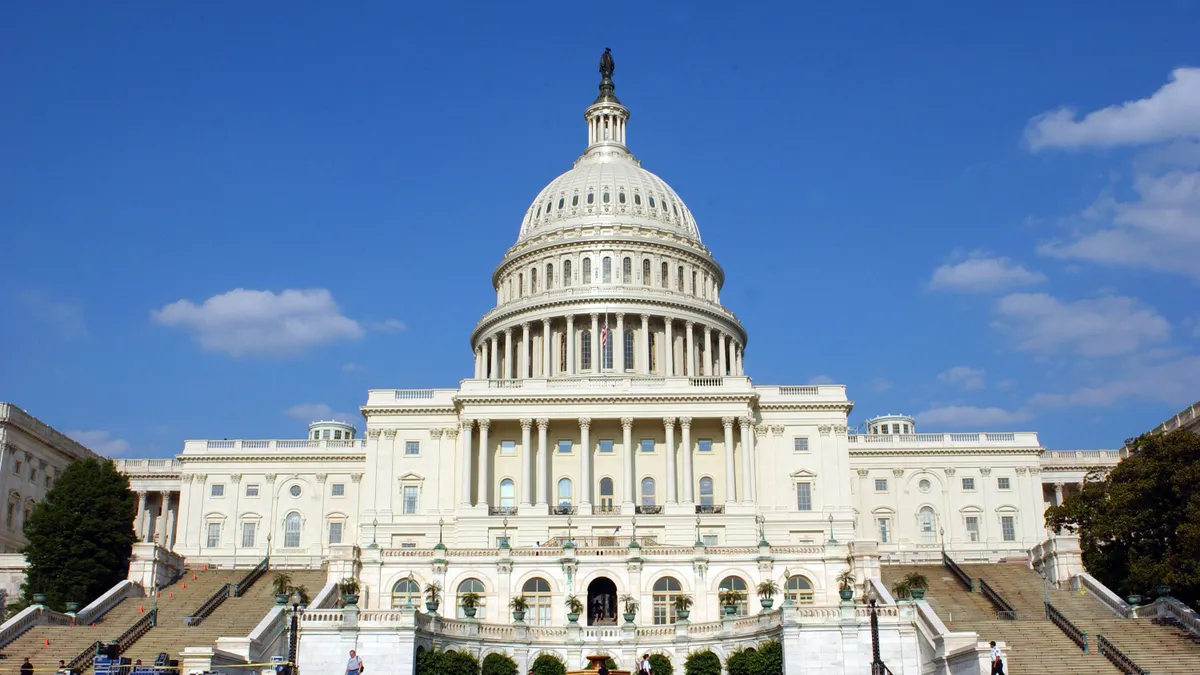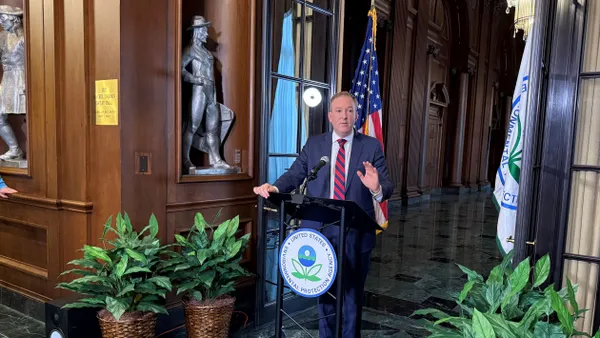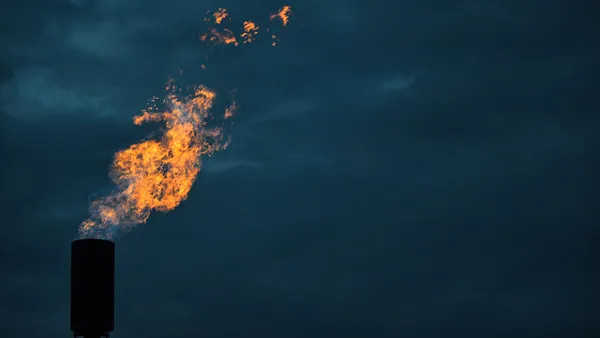Dive Brief:
- A group of 21 U.S. representatives called on the EPA to update its New Source Performance Standards and Emissions Guidelines to be more stringent for MSW landfills, reducing the release of methane and other landfill gases.
- In a December letter sent to EPA Administrator Michael Regan, the lawmakers, all Democrats, said the agency should open a rulemaking ahead of its legally required deadline of August to incorporate the latest emissions tracking and control technology.
- In 2021, landfill methane emissions totaled approximately 122.6 million metric tons of carbon dioxide equivalent, according to the most recent U.S. Greenhouse Gas Inventory. MSW landfills were the third-largest source of methane in the United States.
Dive Insight:
The EPA has faced escalating pressure from all sides to update its emissions standards on landfills as technology matures and the focus on methane as a potent greenhouse gas increases.
Last year, a group of more than 50 mayors and other local officials sent a similar letter to the EPA urging the agency to update its standards, emphasizing the risk they face from warming temperatures, sea level rise and extreme weather events due to climate change.
Industry groups have complained about the ways in which the federal government measures and regulates emissions as well. While the industry is increasingly turning to drone or satellite-based technology in addition to real-time well monitors for landfill gas tracking, the EPA has been slow to require such methods. As of the end of 2023, the agency has approved just one technology, SnifferRobotics, to serve as a drone-based landfill monitoring technology.
The lawmakers who signed the letter, sent in December, include Rep. Julia Brownley, D-Calif., who has previously sponsored organics legislation, plus House Natural Resources Committee Ranking Member Raúl Grijalva and House Judiciary Committee Ranking Member Jerrold Nadler.
The letter noted that the EPA has been more active in addressing methane and other fugitive emissions in the oil and gas sector, spurred in part by the Inflation Reduction Act. Proposed details of the Waste Emissions Charge released by the agency last week would require oil and gas operators to pay a fee based on the number of tons of excess emissions released at their facility. The agency also finalized New Source Performance Standards and Emissions Guidelines for the oil and gas sector in December, and proposed new NSPS and EG standards for MSW combustors last week.
The EPA last proposed an update to the New Source Performance Standards and Emissions Guidelines for landfills in 2016. It began enforcing the update for a large number of landfills in 2021, following a legal battle over the rules.
The Biden administration has made reducing methane emissions a priority, releasing a U.S. Methane Emissions Reduction Action Plan in 2021. The plan set a goal to achieve 70% gas capture and flare rate for all landfills under the EPA's voluntary Landfill Methane Outreach Program, a 12% increase compared to 2021 levels. It also reemphasized the federal government's existing goal to reduce food loss and waste by 50% by 2030.
If and when the agency opens the rulemaking to revise landfill standards, lawmakers are pushing the agency to require landfill operators to install gas capture systems at "the earliest feasible date." They note a recent study published by the EPA which found that half of the methane released by landfilled food waste — the largest individual source of landfill methane — is emitted before a landfill is typically required to install gas collection systems, undermining systems' effectiveness.
The lawmakers also urged the agency to include "robust and effective cover requirements" to mitigate methane emissions and reiterate the importance of diversion of organic waste from landfills.
The Biden administration has signaled in recent months that it’s motivated to act on emissions from organic waste. It released an interagency methane strategy in November that laid out funding to test and update modeling assumptions about landfill emissions. The administration also announced a draft national food waste strategy at COP28 that lays out funding opportunities and action items to support local efforts to divert food from landfills.
All 21 lawmakers that signed the letter were Democrats. It was endorsed by the Natural Resources Defense Council, Environmental Defense Fund and Rocky Mountain Institute. In an emailed statement, a spokesperson for the EPA said: “EPA has received the letter and will respond appropriately.”














